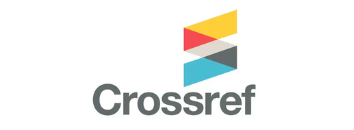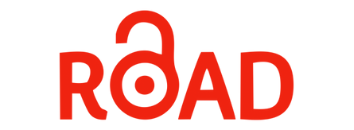Analysis of Factors Which Affect Budgetary Slack (Survey of SOE in Bandung)
DOI:
https://doi.org/10.24002/kinerja.v24i1.2415Abstract
This study aims to analyze the factors that affect budgetary slack which include employee motivation and asymmetric information with participative budgeting as the antecedent variables. The research method was conducted through a survey method by distributing questionnaires to 229 heads of responsibility center on SOEs in Bandung. In addition, interviews and group discussions were conducted to improve data collection. The data obtained were analyzed using the structural equation model - LISREL. The results showed that asymmetric information has a positive effect on budgetary slack and employee motivation has a negative effect on budgetary slack. Meanwhile, participative budgeting has a positive effect on asymmetric information and employee motivation.
Keywords: Participative Budgeting, Asymmetric Information, Employee Motivation, Budgetary Slack
References
Adnan, N.L., & Ali, R. 2014. How Prevalent is Dysfunctional PMS Behaviour among Malaysian Bankers? Journal of Applied Environmental and Biological Sciences, 4(6S), 41-49.
Alamsyah, W. 2018. ICW: Korupsi Pengadaan Barang 2017 Meningkat, Negara Rugi Rp 1T. Retrieved July 9, 2018, from detiknews: https://news.detik.com/berita/d-3885311/icw-korupsi-pengadaan-barang-2017-meningkat-negara-rugi-rp-1-t
Anthony, R.N., & Govindarajan, V. 2007. Management Control Systems. Singapore: McGraw-Hill Education (Asia).
Aprila, S., & Hidayani, S. 2012. The Effect of Budgetary Participation, Asymmetry Information, Budget Emphasis and Comitment Organization to Budgetary Slack at SKPD Governmental of Bengkulu City. The 13th Malaysia Infonesia Conference on Economics, Management and Accounting. Malaysia: MICEMA.
Baerdemaeker, J.D., & Bruggeman, W. 2015. The Impact of Participation Strategic Planning on Managers' Creation of Budgetary Slack: The Mediating Role of Autonomous Motivation and Affective Organizational Commitment. Management Accounting Research, xxx-xxx.
Barki, H., & Hartwick, J. 1989. Rethinking the Concept of User Involvement. MIS Quaterly, 13(1), 53-63.
Basuki, F.H. 2015. Participatory Budgeting and Managerial Performance in Conditions of Information Asymmetry. IJABER, 13(6), 4529-4555.
Brink, A.G., Coats, J.G., & Rankin, F.W. 2018. Who’s the boss? The economic and behavioral implications of various characterizations of the superior in participative budgeting research. Journal of Accounting Literature, 89-105.
Chandra, D.S. 2011. Management Control Systems: Principles and Practices (Eastern Economy ed.). New-Delhi: PHI Learning Private Limited.
Cheng, K.-C., Chen, T.-C., & Shih, N.-S. 2014. The Influence of Budgetary Participation by R&D Managers on Product Innovation Performances: The Effect of Trust, Job Satisfaction and Information Asymmetry. Asia Pacific Management Review, 19(2), 133-150.
Colquitt, J.A., LePine, J.A., & Wesson, M.J. 2017. Organizational Behavior: Improving Performance and Commitment in The Workplace (5th ed.). New York: McGraw-Hill Education.
Damrongsukniwat, P., Kunpanitchakit, D., & Durongwatana, S. 2011. The Measurement and Determinats of Budgetary Slack: Empirical Evidence of Listed Companies in Thailand. Thailand: Chulalongkorn University.
Dermer, J. 1975. The Interrelationship of Intrinsic and Extrinsic Motivation. The Academy of Management Journal, 18(1), 125-129.
Djalil, M.A., Indriani, M., & Muttaqin. 2017. The Influence of Organizational Commitment and Motivation in the relationship between Budget Participation and Managerial Performance (Empirical Study on Provincial Government Agencies (SKPA) of Aceh Province, Indonesia). Broad Research in Accounting Negotiation, and Distribution (BRAND), 8(1), 12-24.
Douglas, P.C., & Wier, B. 2000. Integrating Ethical Dimencions into a Model of Budgetary Slack Creation. Journal of Business Ethics, 28(3), 267-277.
Dow, K.E., Watson, M.W., Greenberg, P. S., & Greenberg, R. H. 2015. Understanding Participation: Situational Participation, Intrinsic Involvement, and Influences. Advances in Management Accounting, 21, 25-47.
Drury, C. 2018. Management and Cost Accounting (10th ed.). Hampshire: Cengage Learning EMEA.
Dunk, A.S. 1993. The Effect of Budget Emphasis and Information Asymmetry on The relation Between Budgetary Participation and Slack. The Accounting Review, 68(2), 400-410.
Dunk, A.S., & Nouri, H. 1998. Antecedents of Budgetary Slack: A Literature Review and Synthesis. Journal of Accounting Literature, 17, 72-96.
Fall, A., & Roussel, P. 2014. Compensation and Work Motivation: Self-Determintation Theory and the Paradigm of Motivation through Incentives. In M. Gagne, The Oxford Handbook of Work Engagement, Motivation, and Self-Determination Theory (pp. 199-217). New York: Oxford University Press.
Fanani, Z., & Saudale, G.E. 2018. Influence of Information Asymmetry and Self-Efficacy on Budgetary Slack: An Experimental Study. Jurnal Akuntansi dan Keuangan, 20(2), 62-72.
Faria, J.A., & Silva, S.M. 2013. The Effect of Information Asymmetry on Budget Slack: An Experimental Research. African Journal of Business Management, 7(13), 1086-1099.
Fisher, J.G., Maines, L.A., Preffer, S.A., & Sprinkle, G.B. 2002. Using Budgets for Performance Evaluation: Effect of Resources Alocation ang Horizontal Information Asymmetry on Budget Proposals, Budget Slack and Performance. The Accounting review, 77(4), 847-865.
Goebel, S., & WeiBenberger, B.E. 2016. The Dark Side of Tight Financial Control: Causes and Remedies of Dysfunctional Employee Behaviors. Schmalenbach Business Review, 17, 69-101.
Greenberg, J. 2011. Behavior in Organizations (10th ed.). Harlow: Pearson Education Limited.
Hair, J.F., Black, W.C., Babin, B.J., & Anderson, R.E. 2014. Multivariate Data Analysis (7th ed.). Harlow: Pearson Education Limited.
Hansen, D. R., Mowen, M. M., & Guan, L. 2009. Cost Management: Accounting & Control (6th ed.). USA: South-Western Cengage Learning.
Horngren, C.T., Datar, S.M., & Rajan, M.V. 2015. Cost Accounting: A Managerial Emphasis (15th ed.). USA: Pearson Education.
Jaworski, B.J., & Young, S.M. 1992. Dysfunctional Behavior and Management Control an Empirical Study of Marketing Managers. Accounting Organizations and Society, 17(1), 17-35.
Kinicki, A., & Fugate, M. 2016. Organizational Behavior: A Practical, Problem-Solving Approach. New York: McGraw-Hill Education.
Kren, L., & Maiga, A. 2015. The Intervening Effect of Information Asymmetry on Budget Participation and Segment Slack. Advances in Management Accounting, 141-157.
Kridawan, A., & Mahmud, A. 2014. Pengaruh Kejelasan Sasaran Anggaran terhadap Senjangan Anggaran dengan Asimetri Informasi sebagai Variabel Moderasi. Accounting Analysis Journal, 3(1), 361-369.
Lavarda, C.E., & Almeida, D. M. 2013. Budget Participation Informational Asymmetry: A Study in a Multinational Company. Brazilian Business Review, 10(2), 72-94.
Macintosh, N., & Quattrone, P. 2010. Management Accounting and Control Systems: An Organizational and Sociological Approach. United Kingdom: John Wiley & Sons Ltd.
McShane, S.L., & Glinow, M. A. 2018. Organizational Behavior: Emerging Knowledge, Global Reality (8th ed.). New York: McGraw-Hill Education.
Merchant, K. A. 1981. The Design of the Corporate Budgeting System: Influences on Managerial Behavior and Performance. The Accounting Review, 56(4), 813-829.
Merchant, K.A., & Van der Stede, W. A. 2012. Management Control Systems: Performance Measurement, Evaluation, and Incentives (3rd ed.). Harlow: Financial Times/Prentice Hall.
Milani, K. 1975. The relationship of Participation in Budget Setting to Industrial Supervisor Performance and Attitudes: A Field Study. The Accounting Review, 50(2), 274-284.
Newstrom, J.W. 2015. Organizational Behavior: Human Behavior at Work (14th ed.). Singapore: McGraw-Hill Education.
Ngo, Q.-H., Doan, T.-N.-N., & Huynh, T.-N. 2017. A Study on Managers' Creation of Budgetary Slack in Emerging Economies: The Case of Vietnam. Asian Journal of Accounting Research, 2(2), 15-28.
Noreen, E.W., Brewer, P. C., & Garrison, R. H. 2014. Managerial Accounting for Managers (3rd ed.). New York: McGraw-Hill/Irwin.
Novo, L. 2017. Suka Duka Whistleblower. Retrieved July 9, 2018, from Metro TV News: http://telusur.metrotvnews.com/news-telusur/yNLeryWb-suka-duka-whistleblower
Onsi, M. 1973. Factor Analysis of Behavioral Variables Affecting Budgetary Slack. The Accounting Review, 48(3), 535-548.
Pangarso, B.S. 2018. Pimpinan Komisi VI DPR Desak Dirut Waskita Mundur. Retrieved July 9, 2018, from Teropong Senayan: http://www.teropongsenayan.com/82552-pimpinan-komisi-vi-dpr-desak-dirut-waskita-mundur
Parmoredjo, E.Y. 2018. Kebijakan Pemotongan Anggaran di PT Telekomunikasi Indonesia, Tbk. (M. L. Kenisah, Interviewer)
Riadi, E. 2018. Statistik SEM Structural Equation Modeling dengan LISREL. Yogyakarta: CV Andi Offset.
Rum, M. 2017. Kejaksaan Perluas Pengusutan Kasus Korupsi Handling BBM Fiktif di Pertamina. Retrieved July 9, 2018, from Gres News: http://www.gresnews.com/berita/hukum/113178-kejaksaan-perluas-pengusutan-kasus-korupsi-handling-bbm-fiktif-di-pertamina/
Samad, A. 2018. Ini Dia Lima Penyakit Birokrasi Menurut Abraham Samad. Retrieved July 9, 2018, from Harian Jogja: http://news.harianjogja.com/read/2018/04/08/500/908775/ini-dia-lima-penyakit-birokrasi-menurut-abraham-samad
Shim, J.K., Siegel, J.G., & Shim, A.I. 2012. Budgeting Basics and Beyond (4th ed.). USA: John Wiley & Sons, Inc.
Syarif, L.M. 2018. Nindya Karya Jadi Tersangka KPK, Ini Tanggapan Pemerintah. Retrieved July 9, 2018, from iNews: http://www.inews.id/finance/read/92393/nindya-karya-jadi-tersangka-kpk-ini-tanggapan-pemerintah?sub_slug=bisnis
Van der Stede, W.A. 2000. The Relationship between Two Consequences of Budgetary Controls: Budgetary Slack Creation and Managerial Short-Term Orientation. Accounting Organizations and Society, 25, 609-622.
Walther, L.M., & Skousen, C.J. 2009. Budgeting and Decision Making. BookBoon.
Warr, P., Cook, J., & Wall, T. 1979. Scales for the Measurement of Some Work Attitudes and Aspects of Psychological Well-Being. Journal of Occupational Psychology, 52, 129-148.
Weibel, A., Wiemann, M., & Osterloh, M. 2014. A Behavioral Economics Perspective on the Overjustification Effect: Crowding-In and Crowding-Out of Intrinsic Motivation. In M. Gagne, The Oxford Handbook of Work Engagement, Motivation, and Self-Determination Theory (pp. 72-84). New-York: Oxford University Press.
Weygandt, J.J., Kimmel, P.D., & Kieso, D.E. 2015. Managerial Accounting: Tools for Business Decision Making (7th ed.). Singapore: John Wiley & Sons Singapore Pte. Ltd.
Wijanto, S.H. 2008. Structural Equation Modeling dengan Lisrel 8.8: Konsep & Tutorial. Yogyakarta: Graha Ilmu.
Yee, C.M., Khin, E.W., & Ismail, K. 2016. An Analysis of Budgetary Goals Impacting Organizational Performance. Audit Financiar, XIV(5 (137)), 551-563.
Zimmerman, J.L. 2014. Accounting for Decision Making and Control. United States of America: McGraw-Hill Education.
Zonatto, V.C., & Lavarda, C.E. 2013. Evidence of the effects of budget participation on information asymmetry, occupational stress and work performance. Advances in Scientific and Applied Accounting, 6(11), 92-111.














